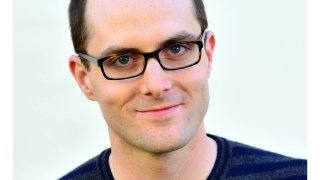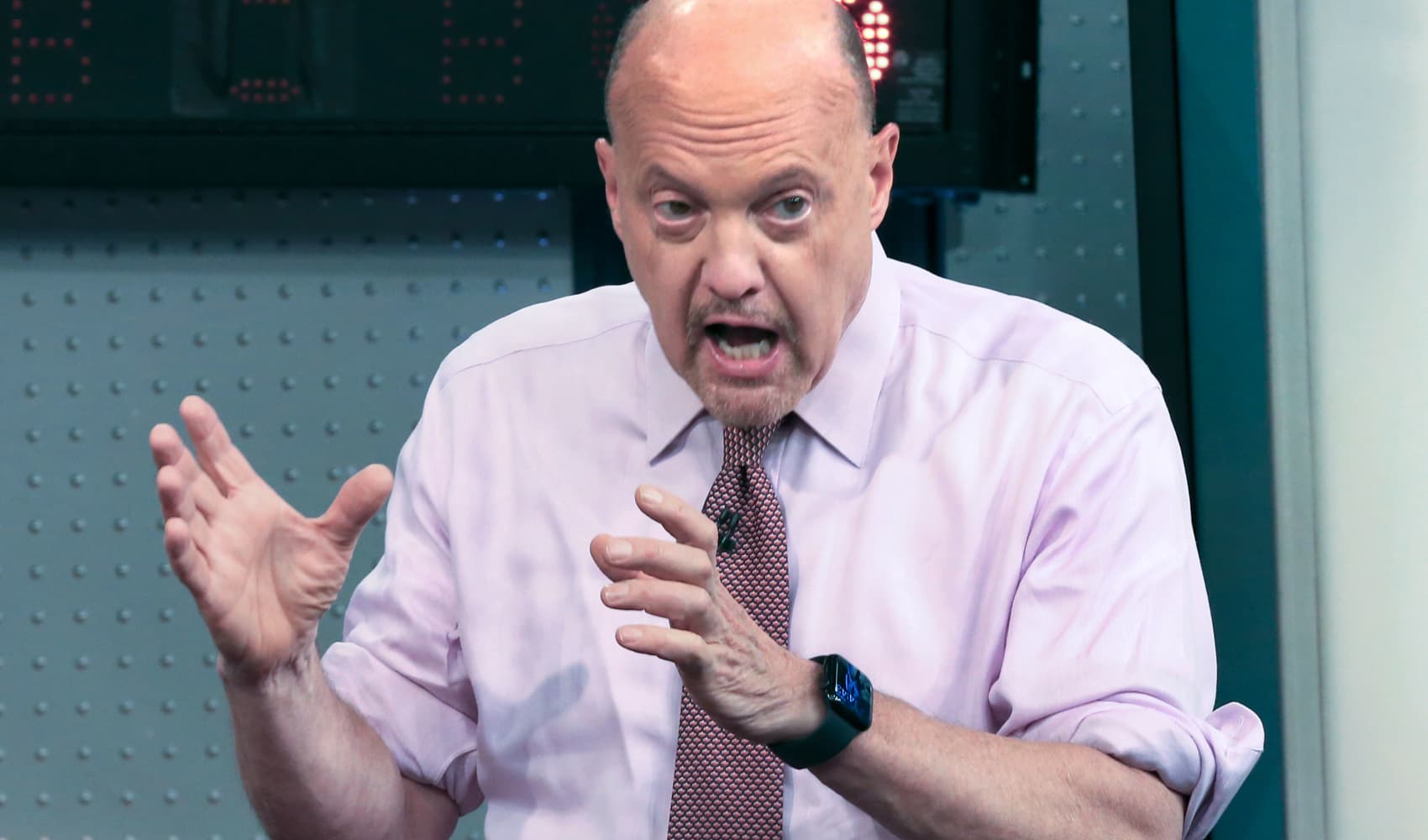
"I have been dealing with mental health issues since I was a teen in one form or another," says Matthew Cooper.
Cooper, 38, is the co-founder of Silicon Valley fintech start-up EarnUp. In August of 2020, EarnUp was thriving (managing more than $10 billion in loans) — but Cooper was not. After being CEO for six years, Cooper made news when he stepped down to focus on his mental health.
For nearly a decade working in the corporate finance world, and in the beginning at EarnUp, Cooper was able to mask his anxiety, panic attacks and depression. But that ended abruptly last August when he needed to be hospitalized.
"I went from being in a pretty good place to pretty deep anxiety, depression and suicidal ideation in a matter of days," Cooper tells CNBC Make It.
Get a weekly recap of the latest San Francisco Bay Area housing news. Sign up for NBC Bay Area’s Housing Deconstructed newsletter.
Though Cooper had pursued residential treatment in the past, the stress of the pandemic made things more intense this time.
"This time it was scarier [and] a more rapid decline than I had ever experienced before," he says. "I believe Covid and the pandemic experience definitely contributed to that for me in that I get a lot of energy and from being around other people."
After getting treatment, Cooper along with his co-founder, Nadim Homsany, decided in September that it was best for him to step down as CEO to give himself time to heal.
Money Report
Cooper wanted to tell not only his 90-member staff but also the world, why he made that decision. So in December, he wrote an op-ed for Quartz detailing his mental health journey while building a company.
"I don't think there's any obligation on myself or anyone to share their medical history or details unless they want to. But it was so valuable to me and it falls in line with [EarnUp's] culture of transparency and wellness," he says.
"It feels important to me to use my story and my voice to help other people that are in pain or have family members who are in pain."
Today, Cooper, who is on the board of EarnUp and does advisory work, but is not involved in the day-to-day, says he's doing "really well."
Here, during Mental Health Awareness month, Cooper talks to CNBC Make It about his experience.
Masking his mental health issues at work
"For a long time, I would cover up mental health issues with other mental health issues. For example, I would manage my anxiety disorders with compulsive eating disorders like with anorexia and bulimia," he says, because it gave him a sense of control.
"When I was focused on those, I was able to continue to work in a pretty intense way. That was [one] tool for sort of hiding in plain sight," he says.
Cooper says he also tended towards careers where being anxious and overwrought in your work were the norm.
"I worked in management consulting and then had finance careers where [in] my opinion is, there's a lot of people who don't have the healthiest relationship to their bodies or to the world, so being super anxious or collapsing sometimes from just doing too much and being unhealthy," was normal, he says.
But eventually, the extreme anxiety would break through.
"I would be having a conversation with a group of people at work and it wouldn't go the way I wanted it to," Cooper says.
That would cause him to "spin out," he says, and to start to "loop mentally on what went wrong, why it's bad, all the terrible things that are going to happen because this meeting or this event at work didn't go how I wanted it to."
The anxiety would progress into a panic attack where Cooper would just freeze up.
Cooper says he would also wake up in the middle of the night in a panic, incredibly anxious and obsessing about things that had happened at work or elsewhere. Then, "when I'm not sleeping, I get tired and that makes [my] anxiety cycle's worse."
Recovery
In August, Cooper was hospitalized because of how quickly his mental health declined.
"[I]t's a lot harder to adapt when things happen in hours or days than when they happen over weeks," he says.
Since September, Cooper has been in Vancouver, spending time with family and resting, which he says is helping.
His daily routine also helps him manage his mental health.
"[I] get up at 7 a.m. I do my first kind of meditation, which is five minutes of very light yoga-type movement. It's just kind of getting into my body. For me, as somebody who deals with a lot of kind of trauma experience, it's a practice for me to come into my body every day and not just live in my head," he says.
Then Cooper does free-form writing for about 15 minutes to get out whatever is in his head. "This is inspired by a practice called Morning Pages from a book called "The Artist's Way" by Julia Cameron," Cooper says.
Finally, Cooper does a 10-minute silent meditation. "I used to use Headspace a lot. I think apps can be a really powerful tool for a lot of people, but recently I shifted to just doing a silent meditation where I just sit there and kind of be with myself."
Four days a week Cooper does some type of rigorous exercise, and "I go on a lot of walks to break up the day," he says.
Cooper also attends group events on most days, often through NAMI (National Alliance on Mental Illness), where he also volunteers "to get that daily connection from other people that are living in a kind of a recovery journey." In the past, Cooper says he's done group therapy and 12-step programs of all sorts and has found residential treatment helpful.
"That can be a more of an intensive time for rest and rehabilitation and doing deeper work, especially around trauma, [it] has been easier to focus on with psychiatrists who can help guide you [and] taking medications at different points," he says.
(Thought Cooper does not go into the details of his trauma, he calls it intergenerational. "The result is that my body and mind are much more predisposed to fear, anxiety, depression in ways that other people's bodies and minds are not from my experience," he says.)
The response to his transparency
Telling his story "felt like it would be helpful to other people and helpful to me, honestly," Cooper says.
"Mental health is still one area where there is a lot of shame and secrecy in our society in general and in particular in the corporate world. So this feels important," he says.
"If I had gotten cancer, for example, it would be sad, but it wouldn't be strange. A lot of people do step down from work due to mental illness, you just don't see it and they don't talk about it. I think equalizing those things and creating a more casualness about how we talk about these things in the world is important," says Cooper.
"I believe [in] letting people know that they're not alone and that the experiences that they have, other people share too. And it is powerful."
Indeed, people from "all different walks of life and background experiences" have reached out to Cooper to tell him that they or someone they care about "related very deeply" to his story, he says.
"They hadn't been able to really put into words...and this story helped them do that."
In fact, other founders and executives have talked to Cooper about what they're experiencing.
"I've had a number of those conversations, just letting people be heard and kind of telling people more about the tools that I have used that have helped me to get better," he says.
The response has been "very affirming," he says.
Advice on taking the first step to getting help
It's important to know that for each person the journey will be different, Cooper says. But if you are in pain or having challenges, ask for help.
"That can be sharing with a coworker or a friend. It could be going to a therapist — whatever feels accessible," he says. "But I really believe in the power of just telling somebody else that you trust that you are having a challenge, big or small."
Cooper says there is a misconception that if you are diagnosed with a mental illness you are not capable of working in a corporate environment. "And that's clearly not the case, given the vast portion of society that will suffer with mental illness will, at some point in their life, be working at the same time in most of those cases," he says.
Though society and corporate culture have been slow to treat mental health issues as illnesses and to dispel the stigma surrounding it, Cooper does believe a shift is happening.
"I think there is a movement in society towards openness but it is slow and we have a long way to go."
If you are in need of help or know someone who is, you can call the National Suicide Prevention Lifeline, 24/7, for confidential support at 1-800-273-8255. For hotlines in other countries, click here. You can also call the NAMI Helpline at 800-950-NAMI or in a crisis, text "NAMI" to 741741.
Don't miss:
CEO Wynne Nowland on coming out as transgender: ‘I’m much more at peace with myself’
From growing up in poverty to battling the Covid pandemic: How Northwell Health’s CEO found success






